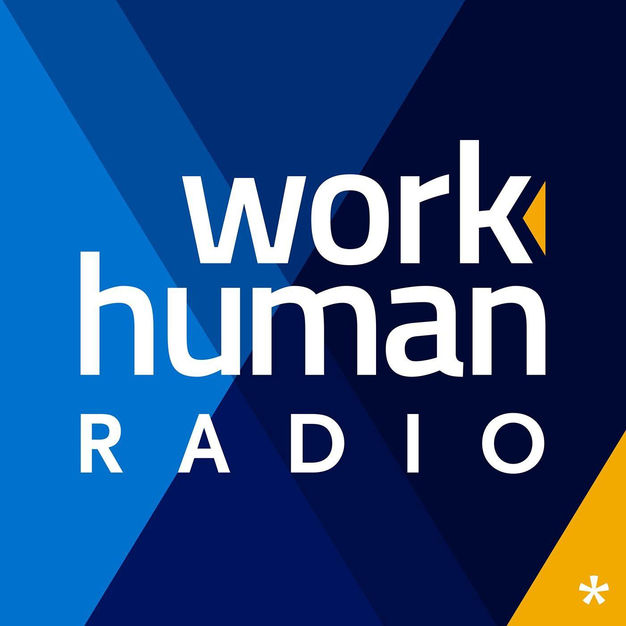
Workhuman Radio
Workhuman
Bringing together the top minds in business and HR to help you create a more human workplace.
- 15 minutes 44 secondsHumanizing the Work Experience with Elena Valentine
Elena Valentine is the CEO and co-founder of Skill Scout, an organization that specializes in talent acquisition and employer branding. She is also the co-founder and Board President of Mezcla Media Collective, whose goal is to elevate women of color and non-binary filmmakers in Chicago. She joins Mike Wood to discuss Skill Scout’s mission and how they have been carrying it out.
Skill Scout
Elena and her colleague realized that many youths lacked access and exposure to job opportunities, and were hindered from achieving success by their lack of knowledge. They founded Skill Scout to provide youths and the wider community with the opportunity to understand which jobs would be the right fit for them. Skill Scout captures and shares the stories of employees from various industries and brings their jobs to life on video.
Humans at Work
Elena describes Skill Scout’s latest project: a series called Humans at Work. It tells the raw, authentic and emotional stories of employees who have found their purpose as people first, workers second. This series stemmed from a need to increase the number of positive stories in the workplace, as they have the power to shift bias and counterbalance and form our brains in new ways. One of the major objectives for filming was to recognize and celebrate employees, she adds. When employees feel appreciated, they are more engaged and loyal to their companies.
COVID-19’s Impact
We are not working from home; we are working at home during a crisis. In previous generations it was the social norm to have a different persona for the workplace than you do at home, but because of the virtual and mostly remote nature of the global workforce, it is almost impossible to separate your work life from your home life. It is important to have empathy during these uncertain times.
Resources
Elena Valentine on LinkedIn
Email: [email protected]
27 August 2020, 4:01 am - 22 minutes 7 secondsManagerial Empathy with Christine Assaf
Christine Assaf is a content specialist for Peridus Group, a boutique human capital consulting firm dedicated to assisting HR professionals and business leaders during crucial periods of growth and change. She is also the author and owner of HR Tact, a personal blog where Christine shares tips and insights about HR. She joins Mike Wood today to discuss the importance of practicing empathy as leaders.
Job Seeking
Christine mentions getting laid off in the beginning of the year, not due to the pandemic, but as a result of bad timing. Mike asks her if she has observed an increase in empathy among hiring managers while searching for a new job. She has received more feedback from companies about the status of her applications recently than in the past, she replies, but empathy is something that should always be practiced in the hiring phase. Too often do people send out applications only to never hear back from the organizations they applied to. Job seekers deserve to know their status, even if they don’t succeed.
Shared Experience
More and more companies have been acknowledging the shared experience that the world is going through, and are subsequently more understanding and considerate with their employees. People are not just losing jobs; they are witnessing their loved ones dying at a high rate. There is a global sense of anxiety even as people work and communicate, and these create a cognitive overload. People respond to cognitive overloads in various ways. Though it usually manifests as the fight-flight-freeze response, it can also show up in other deviant behaviors. The shift to the virtual workplace has brought with it a loss of physical proximity, with which it was easier to be more open and check up on people.
HR’s Role
HR tends to abdicate the responsibility of mental health to EAP programs. However, the best thing an organization can do right now, Christine says, is to be transparent in their uncertainty and offer support.
Resources
20 August 2020, 4:01 am - 41 minutes 3 secondsStarting a New Job During a Pandemic with Dr. Patti Fletcher
Dr. Patti Fletcher is a writer and the Vice President of Brand Marketing for Workhuman. She is also a Forbes contributor, a contributing writer for Green Entrepreneur, the producer and creator of Disrupter Productions, and a Workplace Equity and Disruption Futurist for HR.com. Patti is the co-founder and CEO of PSDNetwork. She joins Mike Wood to talk about starting a new job in a pandemic.
People
Patti shares how she got into HR. While branching off into business, she realized that the only true competitive differentiator between organizations is their people. Patents run out, Patti says, but the intersection of people, including human capital and employee contacts, is where the magic happens. As industrialization evolved, everyone focused on processes, but forgot the people.
Marketing and Brand
She defines marketing as helping people with how to think by supplying them with information in ways they would be open to receiving. She describes “brand” as what people say about you when you’re not in the room.
Patti talks about becoming the new VP of Brand Marketing in the middle of a worldwide health and economic crisis. Fortunately, Patti says, she is no stranger to remote working, as she has never worked in a traditional office space before. She and Mike chat about the difficulties of working from home, and the change it has brought on.
Resources
Dr. Patti Fletcher on LinkedIn | Twitter | Instagram | Facebook
Disrupters: Success Strategies from Women Who Break the Mold by Dr. Patti Fletcher
13 August 2020, 4:01 am - 14 minutes 24 secondsCreating Career Agility with Anne Fulton
Anne Fulton is the co-founder and CEO of Fuel50, a career path software that improves employee engagement and supports diversity and inclusion initiatives. She joins Mike Wood today to discuss her company and the emerging trends in the virtual workplace.
Fuel50
Years ago, Anne and her co-founder wrote The Career Engagement Game, about the importance of career agility for the future workforce. She says that even they were shocked by how much the need for career agility would surpass their predictions. Fuel50’s mission is to deliver career path transparency and growth opportunities for employees to connect them to their full potential. They work with 60 of the world’s leading organizations and a team of 65 “fuelees.” Mike adds that Fuel50 is effective in providing different pathways for people and helping them identify their strengths and skills, so that they do not feel pigeonholed into a singular career.
What’s Changed
Mike asks Anne how the business has changed since the dawn of the COVID-19 pandemic. Six months in, the unemployment rate has skyrocketed to 13%. Prior to the pandemic there was a skills shortage, but currently there is an abundant talent supply. Organizations need to approach their talent pools with a new attitude, Anne urges, and reskill their workers for the future. As hiring is stalled globally, organizations are now looking within themselves for their next talent wave.
Trends
Remote workforce management, supply chain reengineering, and cultural competence are among the skills that are currently trending and in demand. Mike believes it will all trend towards the betterment of the global workforce. He asks Anne what her predictions are for HR going forward. Anne talks about emerging roles that weren’t present before.
Recognition
Employee recognition has increased during the pandemic, Mike says. Companies understand that current times are stressful for everyone in their daily lives outside of work, and should seek to recognize and appreciate their employees for their effort.
Resources
6 August 2020, 4:01 am - 17 minutes 1 secondParenting in a Pandemic with Holly Hazelton and Sarah Payne
Holly Hazelton is the Senior Digital Media Specialist at Workhuman and the founder of their first working-parent employee resource group, Parenthuman. Sarah Payne is the Managing Editor at Workhuman and a member of Parenthuman. They join Mike Wood this week to discuss the challenges the pandemic has brought to parenting.
Remote Working
Working from home is easier in some aspects, but as a parent of two young children, Holly says, it leaves you with even less time for yourself. Sarah adds that she is taking extra precautions due to her pregnancy. They share how they have been juggling working and parenting, as well as the compromises they have negotiated with their spouses and the help they have been receiving.
What COVID-19 Has Done
Mike hopes that the pandemic has revealed a fundamental flaw in the system of the working world: parents need more support if they are to be efficient and productive. They have time to get tactical work done, but not work that requires thinking and extensive mental energy as their minds are occupied with parenting their children. Additionally, Holly claims, COVID-19 has highlighted the inequities within the system with regard to women. Women drop out of the workforce because it usually falls on them to be the primary caretaker and bear the majority of domestic duties, due to a lack of resources available to them.
COVID-19 has also revealed which companies are the most empathetic and understanding in light of the challenges everyone is currently facing with regards to working from home, Sarah says. Mike believes that seeing coworkers in their homes with their children will give everyone a better sense of what people are going through when they return to the office.
Parenthuman
COVID-19 is almost forcing companies to work more humanly, Holly says. The types of organizations and companies that will come out on top post-COVID-19 are the ones who will adapt to the new ways of working. She shares the origins of Workhuman’s first ever working-parent employee resource group, Parenthuman, as well as what they have been up to.
Resources
Holly Hazelton on LinkedIn
Sarah Payne on LinkedIn
30 July 2020, 4:01 am - 32 minutes 4 secondsThe Black Worker’s Experience with Tamara Fields
Tamara Fields is the Office Managing Director for Accenture in Austin, Texas. She is on the board of numerous nonprofit organizations, including the Texas Conference for Women. A business veteran with over two decades of experience in management, she joins Steve Pemberton to discuss the working African-American’s experience, and the power of allies.
Don’t Be Silent
Tamara shares how Accenture is navigating the conversation around diversity, equity and inclusion. African-Americans have been taught generationally to not bring up taboo topics in the workplace such as racism, keep their heads down, and not make people uncomfortable. One of her biggest mistakes, she laments, is not sharing her own professional and personal experiences with regards to racial injustice. Remaining silent makes it harder for unconscious biases and microaggressions to be addressed.
We Are Not Immune
The absence of evidence is not evidence of absence, Steve quotes. People often assume that because Black employees don’t speak about the injustices they occur in the workplace, that they don’t experience them. Multigenerational educated African-Americans are assumed to be immune from racial injustices due to their presentation and articulation, but it is their excellence that becomes a threat and makes them a target, he adds.
Isolation Led to Connection
Tamara talks about her experiences of feeling like the odd one out. She was left out of lunches and gatherings, which isolated her from the rest of her colleagues. This led to her developing strong relationships with her clients out of a personal need for human connection, and it worked out in her favor as her business was successful because of it.
What Happens Next
It is good that conversations are happening, but what is important is what is done with the information shared. Don’t confuse conversation with accomplishment, Steve says. The purpose of conversation is to study direction and then follow that direction with accountability and transparency. He and Tamara share recommended material for discovering more about the Black experience.
Resources
23 July 2020, 4:01 am - 32 minutes 28 secondsDismantling Microaggressions in the Workplace with Sarah Morgan
Sarah Morgan is the Founder and Chief Excellence Officer of BuzzARooney, LLC and the Corporate Director of Human Resources at Rosewood Family of Companies. She joins Steve Pemberton to discuss microaggressions and a leader’s and bystander’s role in dismantling them.
They Foster Discrimination
Microaggressions are the foundation for bullying, harassment and discrimination in the workplace. These major issues normally start off as offhand jokes or comments about someone’s appearance that go unaddressed, which incites the aggressor to become emboldened until it snowballs into a larger problem. An important thing to note however, Sarah says, is that they are often unintentional, and that contributes to it being tricky to deal with from an HR perspective especially.
Three Levels of Microaggressions
There are three levels of microaggressions: microassaults, microinsults, and microinvalidations. Microassaults include slurs and displays of symbols with problematic histories or derogatory meanings. Microinsults involve implications of negative attributes about someone because they belong to a certain group. Microinvalidations occur when someone expresses that they have experienced one of the aforementioned microaggressions and are overlooked or told that they are wrong. Leaders must recognize that their people know right from wrong and should hold them accountable to be their best selves, Sarah urges. Additionally, they must address it when it happens or else it will get worse over time, Steve warns.
The Leader’s Role
Sometimes aggressors are aware that their leader is watching them, and will look to them as if they are asking for permission to commit a microaggression. If you say nothing, you have given your permission, Steve says. When such situations escalate and people wonder how the offender thought the rules didn’t apply to them, the blame lies with the leader or colleague for not addressing the issue. If you witness a microaggression, it is your responsibility as a bystander to confront it right away, before the offender believes they can get away with such behavior.
Sarah highlights the importance of rest and self-care during these difficult times, and shares her practices to ensure her physical and mental well-being.
Resources
Sarah Morgan on LinkedIn
16 July 2020, 4:01 am - 15 minutes 49 secondsWomen, Performance Management, and COVID-19 with Stacia Garr
Stacia Garr is the co-founder and Principal Analyst of RedThread Research and a guest lecturer at the Haas School of Business of the University of California. She joins Mike Wood to discuss RedThread’s timely research into women’s performance management during the current pandemic.
The Report
The initial report was done before the COVID-19 outbreak was declared a pandemic, and there were doubts about whether the time was appropriate to publish it, Stacia shares. However, they decided to collect additional data with regards to the influence of the pandemic on performance and reframed the report.
The Research
Several findings were discovered while investigating the differences in performance management between men and women. One such finding is that managers were much less effective at having difficult conversations with women, and the frequency of those conversations were low. Additionally, studies have shown that due to COVID-19, women are more likely to be removed from the workforce, and more likely to be juggling the equivalent of a part-time job with additional household responsibilities than men. If we are expected to perform at the same level we did before the pandemic, we will burn out, Mike says.
A Systems Issue
Research reveals that the issue lies within the systems, according to Stacia. Performance management is a key component in compensation, so it contributes to the gender pay gap. One systemic change that should be made in order for men and women to have equal footing is the quality and frequency of feedback that women are getting. Stacia shares a study about rating scales and how their structure impacted the feedback women received.
Performance assessments should be an ongoing conversation instead of something that’s done once or twice a year, Stacia says. According to research, it removes stress from the employees, which can impact their performance, and less bias will influence feedback if these conversations are happening continuously throughout the year.
Resources
Stacia Garr on LinkedIn | Twitter
Women, Performance Management and COVID-19 Report | Infographic
9 July 2020, 4:01 am - 21 minutes 27 secondsDismantling Discrimination with Kate Bischoff and Wendy Berry
Kate Bischoff is an attorney and HR consultant at tHRive Law & Consulting LLC and an HR Compliance Adjunct Professor at Mitchell Hamline School of Law. Wendy Berry is a Senior HR Generalist at Just Us Health and a councilperson for West St. Paul City. They join Mike Wood to discuss fostering inclusivity in the workplace for members of the LGBTQ community.
Hope
Mike asks Kate and Wendy how things have been in Minneapolis regarding the current civil unrest. The best takeaway from all of it is the feeling of community, Wendy says. Kate adds that seeing people cleaning up their communities and providing meals for those in need makes her hopeful for a better future where there is a change in the way policing is done.
The Supreme Court’s Landmark Decision
Mike asks Kate to explain the recent LGBTQ rights ruling by the Supreme Court. In Title 7 of the Civil Rights Act of 1964, sex is one of the protected classes against discrimination. The argument was that one cannot describe the orientation of a member of the LGBTQ community without using sexual terms like gender identity, which therefore puts sexual orientation and gender identity in the list of protected classes, Kate clarifies. Wendy expresses her satisfaction with the Court’s decision, though she wishes it was a 9-0 verdict instead of 6-3. It’s all summed up to be basic human decency, Mike says. Wendy describes her experiences with workplace discriminition as an openly lesbian individual. Kate and Wendy discuss the impact of representation in the media.
HR’s Input
Wendy shares suggestions of small but impactful things organizations can do to be more inclusive towards their LGBTQ members, such as having gender neutral bathrooms and encouraging employees to introduce themselves with their pronouns if they so desire. Mike talks about WorkHuman’s culture of treating their employees with the human decency and respect they deserve.
Resources
Kate Bischoff on LinkedIn | Twitter
tHRiveLawConsulting.com | Twitter
Wendy Berry on LinkedIn
2 July 2020, 4:01 am - 21 minutes 49 secondsHow A Hair Salon Owner Is Handling the Lockdown with Gill Barr
Gill Barr is a professional hairstylist and owner of the Gill Barr Freelance hair salon in Dublin, Ireland. She joins Steve Pemberton to discuss how the COVID-19 pandemic has affected her business as well as the impacts it may leave on the industry in the future.
How She’s Coping
Gill stopped working on March 14th and hasn’t been back since, as the nature of her job does not allow social distancing. She expresses her relief about salons reopening on July 29th, and gives a brief report on the decreasing number of cases in Ireland and the government’s response with regards to those affected. Gill shares how she’s been taking advantage of free online education, and posting tutorials on social media for styling and taking care of one’s hair.
The Impact
Steve asks Gill if she thinks the pandemic will have a long-term effect on the industry. People will fall back into the habit of getting their hair done regularly, she replies, and they will remember how good it makes them feel. She discusses the new guidelines salons will have to follow when they reopen, as well as the illegal practices of those who continued working quietly during the lockdown and the effect it has had on the participants.
Steve believes that returning to the salons entails more than just wanting to look good, and asks Gill for her thoughts. Gill says that it’s about self-esteem and taking a mental break. Additionally, it is somewhat of a therapy appointment, especially for Gill’s regulars with whom she has built friendships with over the years.
Resources
25 June 2020, 4:01 am - 18 minutes 45 secondsPacking Gifts with Purpose with Leeatt Rothschild
Leeatt Rothschild is the founder and CEO of Packed with Purpose, an organization dedicated to curating gifts with meaningful impact. She is an expert in employee engagement and an advocate for building human connections in business settings. She joins Steve Pemberton to talk about her company’s objectives and share tips for businesses on how they can express gratitude to their employees.
The Mission
Packed with Purpose is a corporate gifting company on a social mission to create impact by helping organizations and individuals give meaningful gifts to their employees, clients, partners, etc. Each product in their gift boxes comes from a purpose-driven company or social enterprise. Leatt launched Packed with Purpose when she realized that they could impact numerous different communities by sourcing products primarily from the US. Also, recipients of gifts curated by Packed with Purpose are impacted by receiving a gift.
COVID-19’s Impact
Steve asks Leeatt how her company has been affected by the pandemic. Business has increased exponentially during COVID, she reports. More and more companies are seeing the need to express their gratitude to their employees for their continued hard work and productivity despite the challenging circumstances. The silver lining in the pandemic for her company, she says, is being part of an opportunity to do good and connect with other people.
Moving Forward
Steve and Leeatt discuss tips and things for companies to consider when moving forward during and post-pandemic. Due to COVID, people have been forced to work remotely, something previously thought impossible. Leeatt shares ways for employers to keep employee engagement up as well as convey gratitude to employees: part of doing so is expression and the other part is action. The pandemic has also provided a great opportunity for companies and employees to think about their work culture and decide whether it’s a right fit.
Resources
Leeatt Rothschild on LinkedIn
18 June 2020, 4:01 am - More Episodes? Get the App
Your feedback is valuable to us. Should you encounter any bugs, glitches, lack of functionality or other problems, please email us on [email protected] or join Moon.FM Telegram Group where you can talk directly to the dev team who are happy to answer any queries.
 We're Only Human
We're Only Human
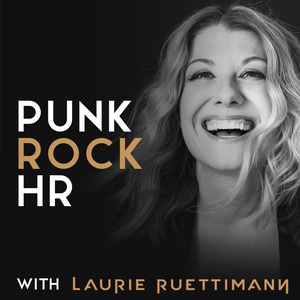 Punk Rock HR
Punk Rock HR
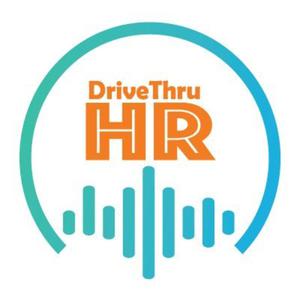 DriveThruHR - HR Conversations
DriveThruHR - HR Conversations
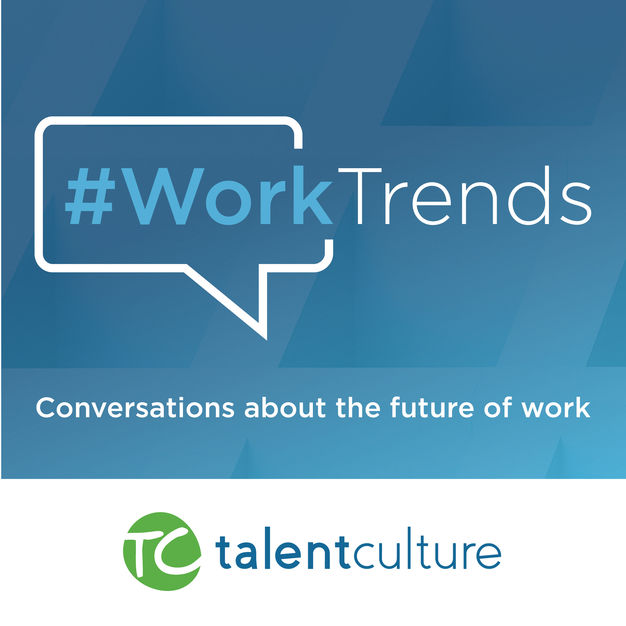 TalentCulture #WorkTrends
TalentCulture #WorkTrends
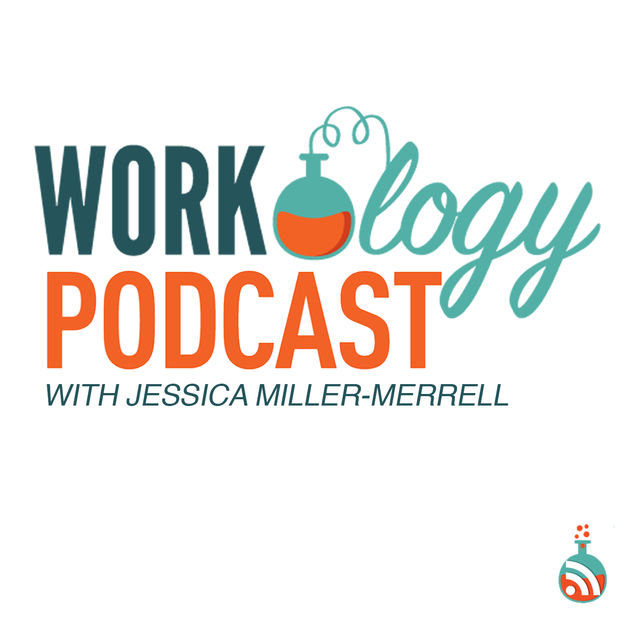 Workology
Workology